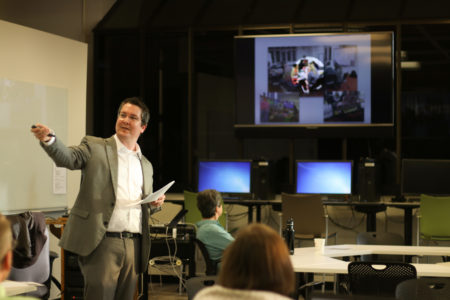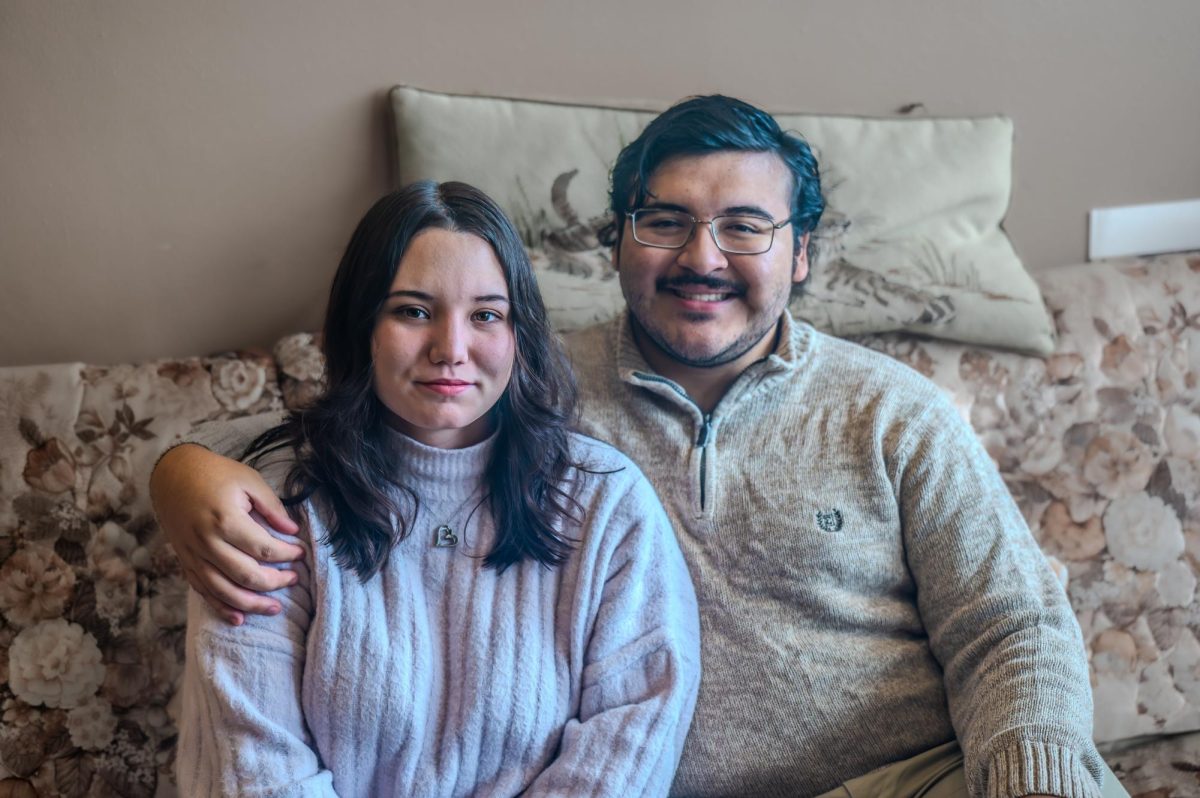
The digital humanities have been gaining momentum in Grinnell as of late. This week in particular saw a handful of people associated with the field, including Rita Raley of University of California, Santa Barbara; Kathleen Fitzpatrick of Michigan State University; and Micha Cárdenas of University of Washington Bothell, as they came to share their respective experiences with Grinnell’s faculty, staff and students.
The College hosted Felix Kronenberg, associate professor of modern languages and literatures and the director of the Language Learning Center at Rhodes College for a session on digital storytelling. His presentation, entitled, “From Digital Storytelling to Reflective Portfolios: Constructionism, Maker Spaces and the Liberal Arts,” threw light on several aspects of the digital liberal arts that he has “been interested in and passionate about both theoretically and practically.”
In a recent semester at Rhodes College, students in Kronenberg’s language pedagogy course created projects using reflective digital portfolios, collaboratively devising a video game for language learning. These projects provided the opportunity for students “to apply the theoretical concepts they have learned to a real-world learning space-building scenario.”
In his presentation, Kronenberg sought to define maker spaces, or spaces in which humans can create things. From simply writing an essay to putting together Ikea furniture, maker spaces appear all around us. He emphasized how his courses have been designed to inculcate the practice of using digital tools to merge the gap between different spaces and different concentrations of study, primarily business, arts and science.
Kronenberg also shared a couple of short first-person video-narratives created by his students. These narratives combined a recorded voice, still and moving images and music or other sounds. This tool carries immense power, due to the endless possibilities of creating something unique and sharing an exclusive perspective on an issue. In fact, this seems to reflect the scope of the tools available to someone engaging in digital humanities. The more scholars bridge the gaps in their studies, the more accessible their projects become to people in different academic fields.



















































